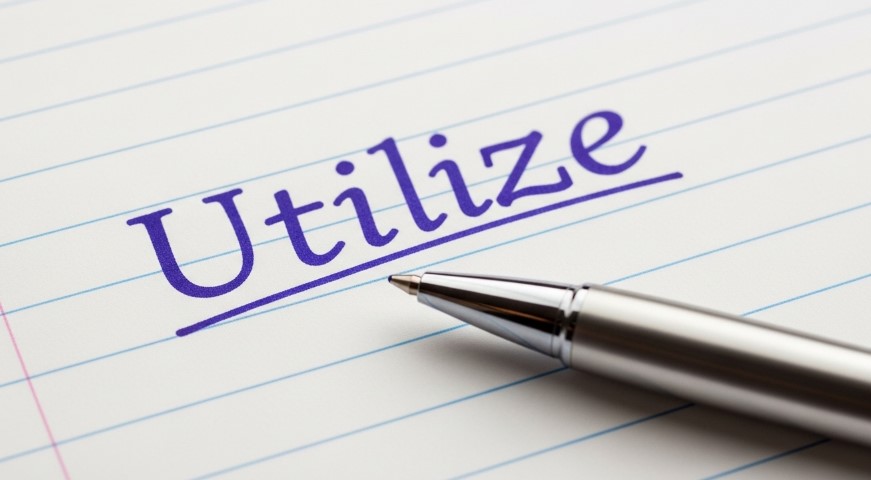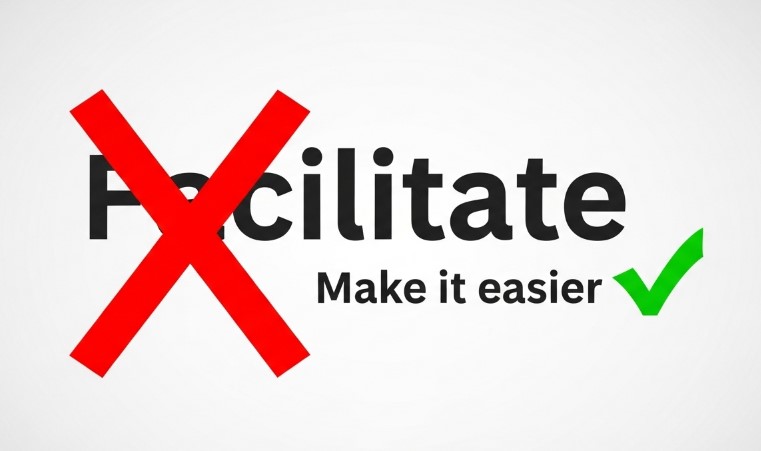Some words sound elegant, sophisticated, or even “elite”—but they’re actually surprisingly ordinary. Many people use them in everyday conversation without realizing their humble origins or plain meanings. Others toss them into emails, resumes, or speeches, thinking they’re leveling up their language, when in reality, these words aren’t all that fancy at all.
We’ll explore the origin of each word, how it’s used today, and why it doesn’t actually elevate your vocabulary as much as you might think. If you’re looking to genuinely sharpen your language or impress with clarity instead of fluff, this is the list to avoid—or at least use wisely.
Common “Fancy” Words That Really Aren’t
View this post on Instagram
| # | Word | Sounds Fancy Because… | But It Really Means… | Better Alternative(s) |
| 1 | Utilize | Technical/scientific tone | Use | Use |
| 2 | Commence | Formal ceremony vibes | Start | Start |
| 3 | Ascertain | Detective-style sophistication | Find out | Learn, discover |
| 4 | Approximately | Precise-sounding | About | Around, nearly |
| 5 | Numerous | Academic tone | Many | Many |
| 6 | Discourse | Intellectual/academic ring | Conversation | Talk, dialogue |
| 7 | Facilitate | Corporate buzzword | Make it easier, help | Help, guide |
| 8 | Commingle | Legal jargon | Mix | Combine, blend |
| 9 | Peruse | Scholarly tone | Read carefully (often misused) | Read, skim (depending on use) |
| 10 | Heretofore | Archaic/formal | Until now | So far |
| 11 | Commiserate | Emotional depth | Sympathize | Express sympathy |
| 12 | Disingenuous | Cold and calculating sound | Insincere | Fake, dishonest |
| 13 | Sufficient | Mathematically precise | Enough | Enough |
| 14 | Commendation | Award-ceremony flavor | Praise | Compliment |
| 15 | Procure | Business/old English tone | Get | Acquire, get |
| 16 | Commorancy | Archaic legal sound | Residency | Living, dwelling |
| 17 | Transpire | Seems technical or poetic | Happen | Happen |
| 18 | Endeavor | Old-school ambition | Try | Try, attempt |
| 19 | Vocalize | Academic or musical sound | Say, speak | Say, express |
| 20 | Cognizant | Sounds bureaucratic | Aware | Aware |
1. Utilize

People reach for “utilize” when they think “use” isn’t serious enough. In reality, “utilize” was originally a technical term used in engineering and science. But in 2025, it’s become the poster child of bloated business language. You’ll see it in emails like “We aim to utilize new platforms…” when “use” would sound clearer and more confident.
Unless you’re in a lab converting one form of energy into another, “use” is almost always the better choice. “Utilize” doesn’t elevate your sentence—it clutters it.
2. Commence
“Commence” gets used because people think it makes a sentence feel more formal or intellectual. Sure, it shows up in phrases like “commencement ceremony,” but that’s exactly the problem—it’s overused in those narrow contexts. In daily writing or conversation, “start” is cleaner, friendlier, and doesn’t make you sound like you’re reading from a legal document.
3. Ascertain
To “ascertain” something sounds like you’re donning a deerstalker hat and solving a crime. In truth, you’re just trying to “figure out” or “learn” something. It’s useful in legal or technical reports where precision matters, but outside of those contexts, it usually reads as puffery.
If someone says, “I must ascertain the facts,” ask them if they’re in a 1930s detective novel.
4. Approximately

This word isn’t wrong—it’s just overkill. “Approximately 50 people attended” could simply be “about 50 people attended.” The longer version doesn’t add meaning; it just makes the sentence more formal, and sometimes unnecessarily so.
We tend to treat longer words as more accurate, but they often make communication less clear, especially in speech.
5. Numerous
“Numerous” walks into the room like it’s important, but all it’s doing is standing in for “many” or “a lot.” It’s a perfectly fine word, but not particularly highbrow. You’ll see it in grant proposals, high school essays, or mid-tier press releases: “Numerous studies have shown…” Sure, but that’s just “many studies.” Save the syllables unless they’re necessary.
6. Discourse
“Discourse” is one of those words that makes people sound like they’re prepping for a seminar on Foucault. Originally, it just meant “conversation.” These days, it’s everywhere—“the public discourse,” “digital discourse,” “political discourse.” When overused, it loses the weight it’s meant to carry.
If it’s just people talking, say so. “Discussion” or even “talk” often hits harder and feels more natural.
7. Facilitate

Nobody talks like this unless they’re in a meeting. “I facilitated a brainstorming session” just means “I led a meeting.” Or even “I helped.” “Facilitate” lives in pitch decks and HR presentations, not in warm, relatable communication.
If clarity matters, skip the buzzwords and get to the point. “Help,” “run,” or “lead” does the job better.
8. Commingle
To “commingle funds” is a legitimate legal concept. But when used outside of legal or finance, “commingle” just sounds like someone trying too hard to dress up “mix.” Unless you’re managing client escrow accounts, just say “mix together.”
Imagine saying “I commingled the ingredients for the cake”—yeah, no.
9. Peruse
Here’s the twist: most people think “peruse” means “skim.” But it actually means “read thoroughly or carefully.” Because of this widespread misunderstanding, it’s become ambiguous. If you want someone to take their time reading something, say “read carefully.” If you want them to skim it, say that.
10. Heretofore
Nobody needs to use “heretofore” unless they’re writing a legal brief or pretending to be a Victorian noble. It means “until now” or “so far,” and it reeks of artificial importance.
It pops up in contracts or historical fiction, not in emails or social media. “So far” is cleaner, modern, and easier to understand.
11. Commiserate
This word means to express sympathy, but it sounds like you’re filling out HR paperwork. “I want to commiserate with you” feels robotic. Saying “I’m really sorry” or “That sucks, I get it” sounds more human and more heartfelt.
12. Disingenuous
Often used in debates, this word sounds harsh and cold, people hate it. It means “insincere” but in a sterile way. If you want to call someone fake, just do it directly. “That’s not honest” hits harder than “That’s disingenuous.”
13. Sufficient
“Sufficient” isn’t a bad word, but it sounds very mechanical. It means “enough,” but it’s often used to distance the speaker emotionally. “You’ve made sufficient progress” feels less warm than “You’ve made great progress.”
14. Commendation
This is another ceremony-style word. People think it adds flair, but “commendation” just means “praise.” If you’re not giving out military awards or medals, you can just say, “I want to recognize your work.”
15. Procure

This one’s often used to make business actions sound grand. “We procured the assets” really just means “We got the stuff.” Unless you’re trying to impress a procurement officer, skip it.
16. Commorancy
A very old-school legal term for “residency.”Rarely used outside legal texts, but when it shows up, people assume it’s highbrow. Don’t use this word unless you’re literally citing property law.
17. Transpire
Sounds poetic, right? “The events that transpired…” But it just means “happened.” And worse, it’s often misused to mean “was revealed.” Better to say “happened” or “took place” — they’re shorter and clearer.
18. Endeavor
“Endeavor” sounds noble, but it’s an old-school way to say “try.” Unless you’re narrating a space mission, just say “We’ll try our best.” “We’ll endeavor to improve” feels distant and outdated.
19. Vocalize
This word is often used when people want to sound more intelligent than “say.” But unless you’re in a choir rehearsal, “vocalize” adds nothing. Say “say.”
20. Cognizant
@dakaratv_nd_vocabularies vocabulary: synonyms: cognizant – aware #English #vocabulary #synonyms #knowledge #words
“Cognizant” is bureaucratic. It means “aware,” but it’s mostly used in memos or reports to sound serious. “I’m cognizant of the issue” could just be “I know” or “I’m aware of it.” Shorter, friendlier, and more natural.
What to Say Instead
| “Fancy” Word | Say This Instead |
| Utilize | Use |
| Commence | Start |
| Ascertain | Find out |
| Approximately | About |
| Numerous | Many |
| Discourse | Talk/Discussion |
| Facilitate | Help/Lead |
| Commingle | Mix |
| Peruse | Read carefully |
| Heretofore | So far/Until now |

